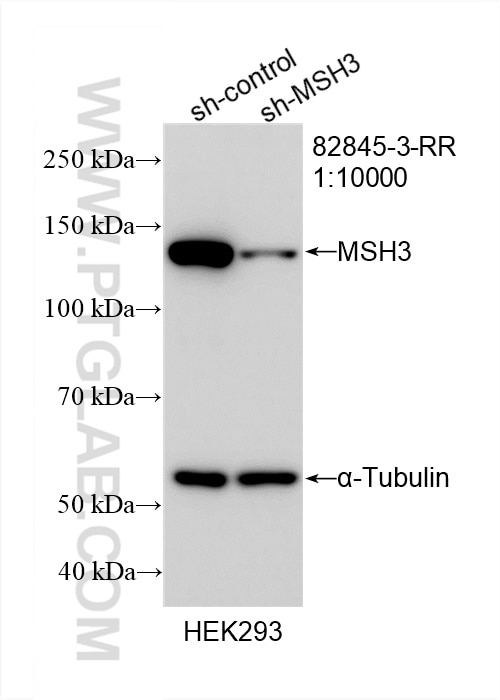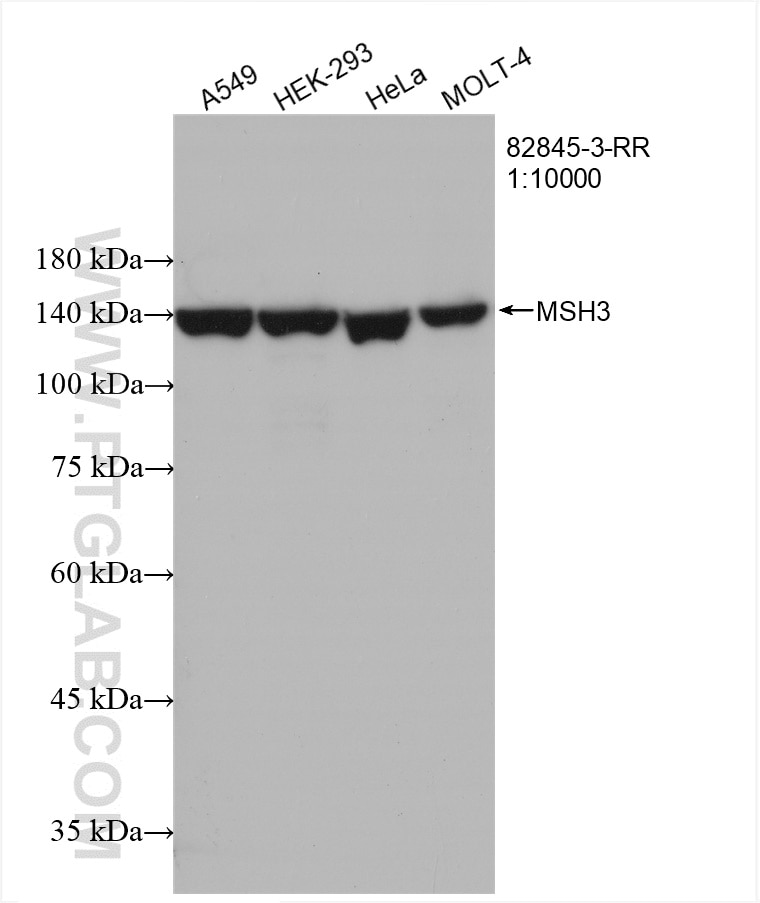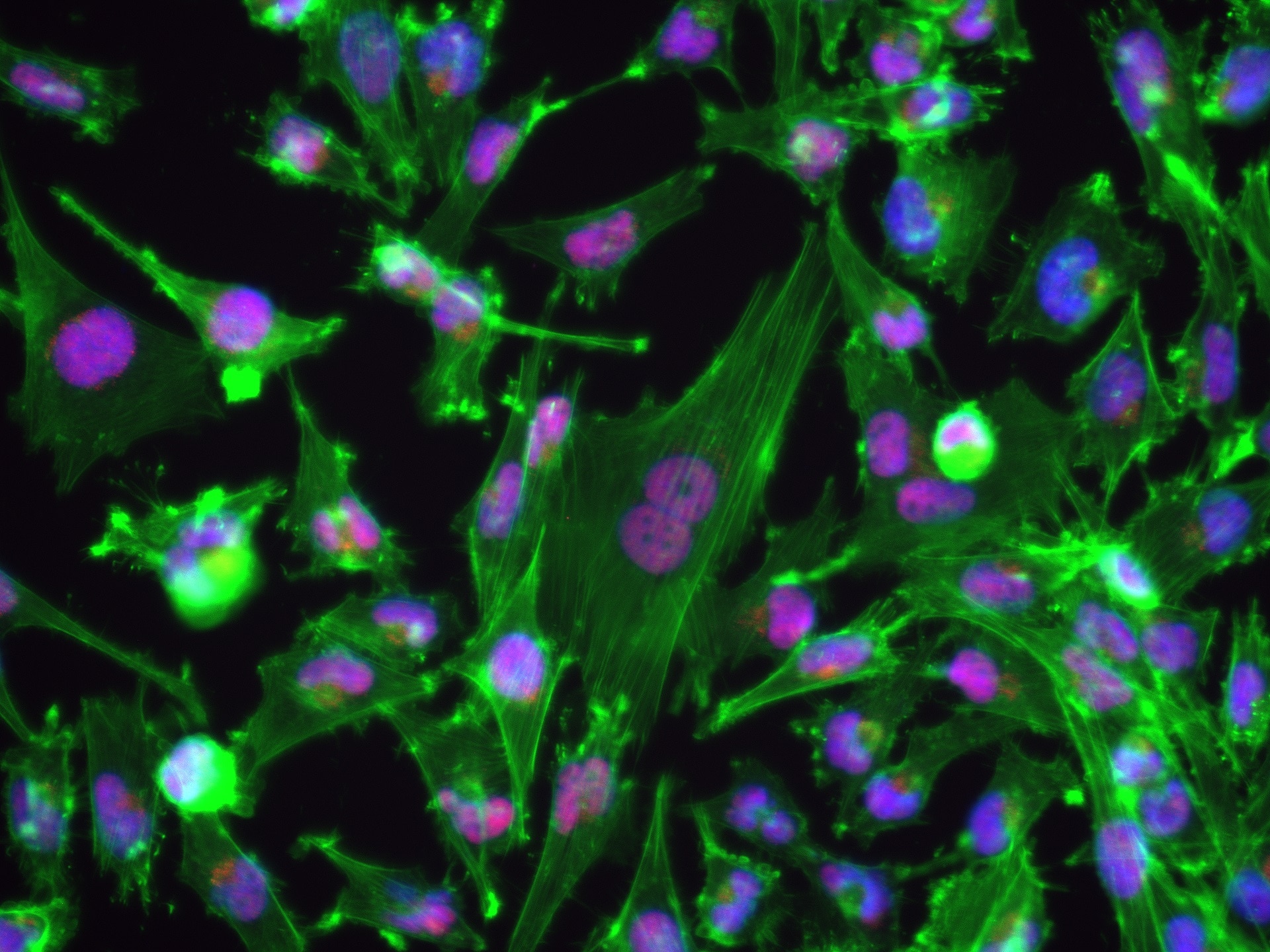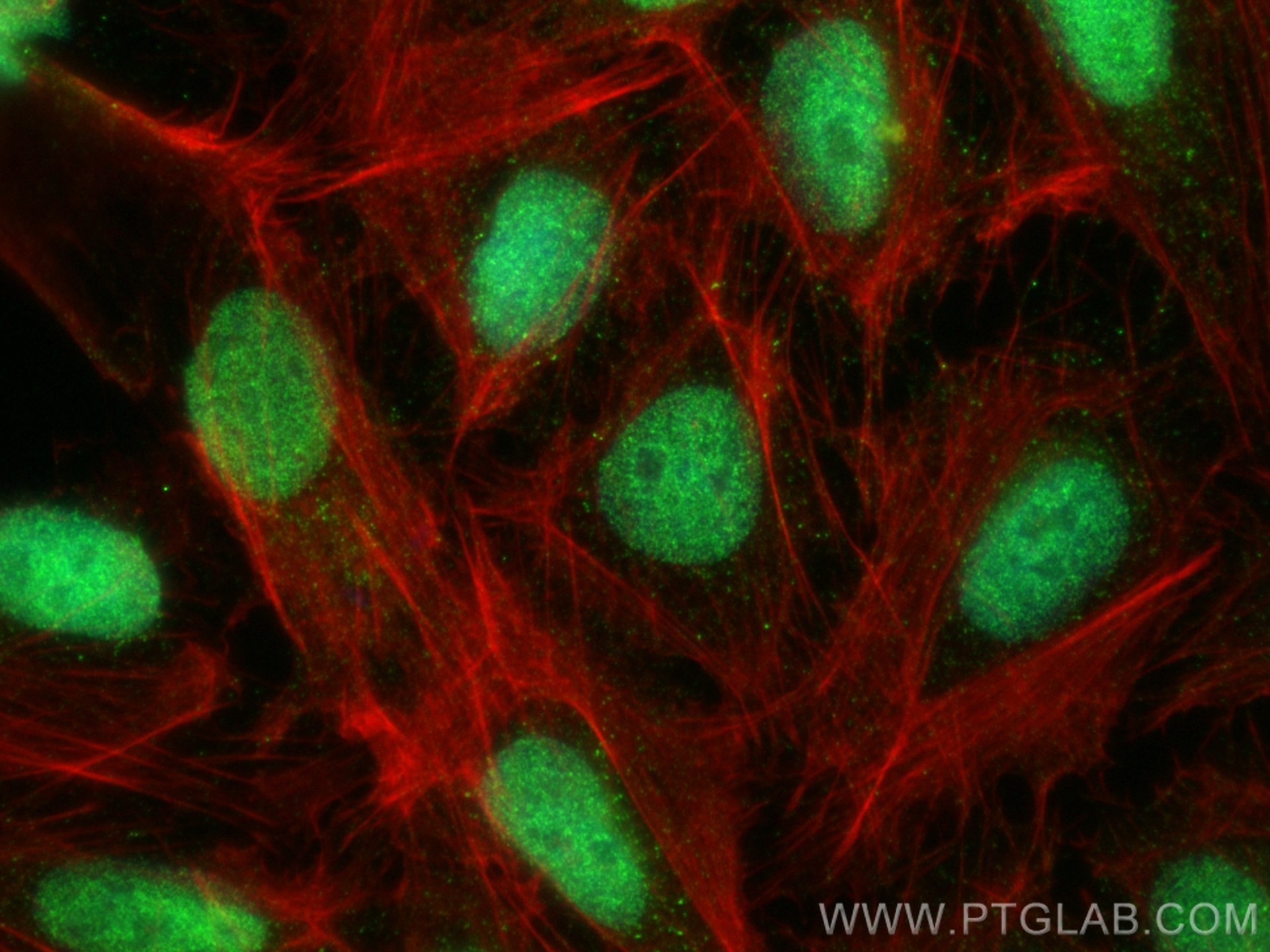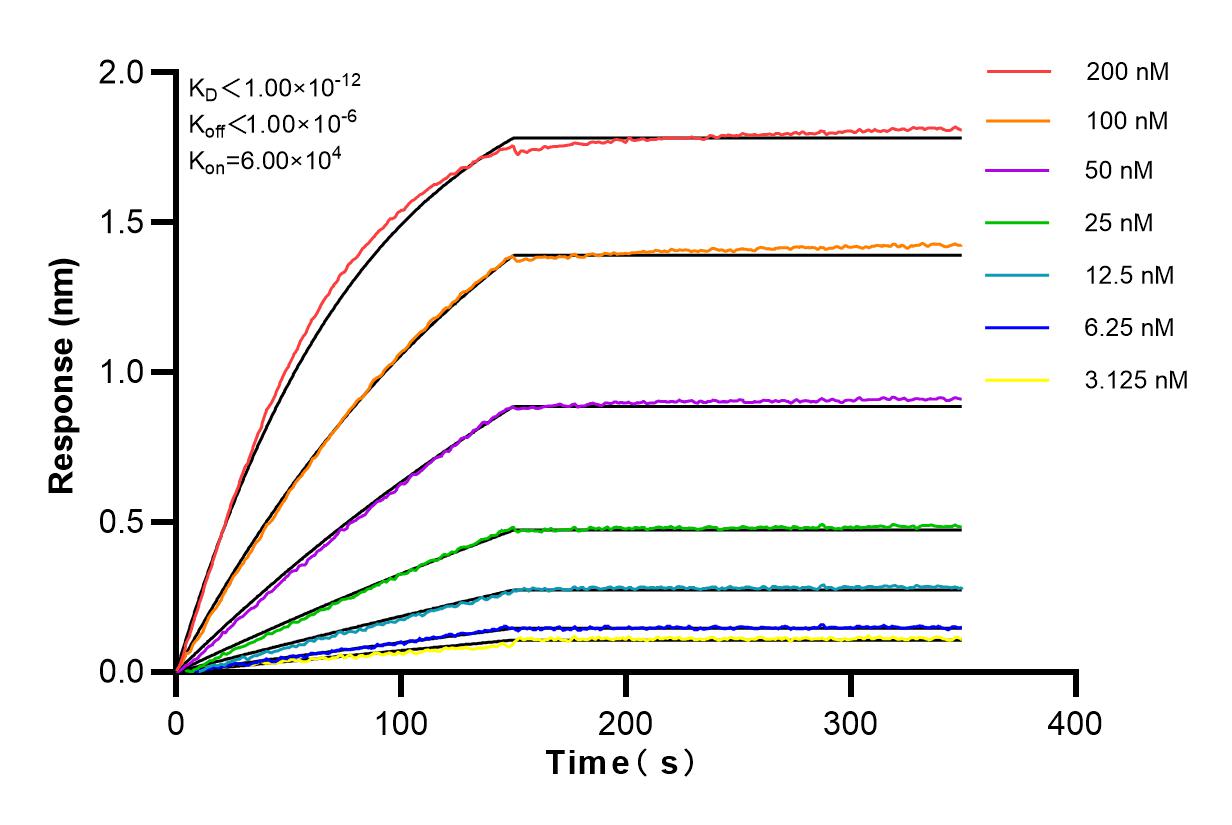Tested Applications
| Positive WB detected in | HSC-T6 cells, HEK-293 cells, HEK-293 cells, HeLa cells, MOLT-4 cells |
| Positive IF/ICC detected in | U-251 cells, U2OS cells |
Recommended dilution
| Application | Dilution |
|---|---|
| Western Blot (WB) | WB : 1:5000-1:50000 |
| Immunofluorescence (IF)/ICC | IF/ICC : 1:750-1:3000 |
| It is recommended that this reagent should be titrated in each testing system to obtain optimal results. | |
| Sample-dependent, Check data in validation data gallery. | |
Product Information
82845-3-RR targets MSH3 in WB, IF/ICC, ELISA applications and shows reactivity with human, rat samples.
| Tested Reactivity | human, rat |
| Host / Isotype | Rabbit / IgG |
| Class | Recombinant |
| Type | Antibody |
| Immunogen | MSH3 fusion protein Ag18060 Predict reactive species |
| Full Name | mutS homolog 3 (E. coli) |
| Calculated Molecular Weight | 1137 aa, 127 kDa |
| Observed Molecular Weight | 127 kDa |
| GenBank Accession Number | BC130434 |
| Gene Symbol | MSH3 |
| Gene ID (NCBI) | 4437 |
| RRID | AB_3086552 |
| Conjugate | Unconjugated |
| Form | Liquid |
| Purification Method | Protein A purification |
| UNIPROT ID | P20585 |
| Storage Buffer | PBS with 0.02% sodium azide and 50% glycerol, pH 7.3. |
| Storage Conditions | Store at -20°C. Stable for one year after shipment. Aliquoting is unnecessary for -20oC storage. 20ul sizes contain 0.1% BSA. |
Background Information
MSH3 is a DNA mismatch repair (MMR) gene that heterodimerizes with MSH2 to form MutS beta which binds to DNA mismatches thereby initiating DNA repair. It undergoes frequent somatic mutation in colorectal cancers (CRCs) with MMR deficiency. MSH3 mismatch repair protein regulates sensitivity to cytotoxic drugs and a histone deacetylase inhibitor in human colon carcinoma cells (PMID: 23724141, PMID:32671096).
Protocols
| Product Specific Protocols | |
|---|---|
| WB protocol for MSH3 antibody 82845-3-RR | Download protocol |
| IF protocol for MSH3 antibody 82845-3-RR | Download protocol |
| Standard Protocols | |
|---|---|
| Click here to view our Standard Protocols |
